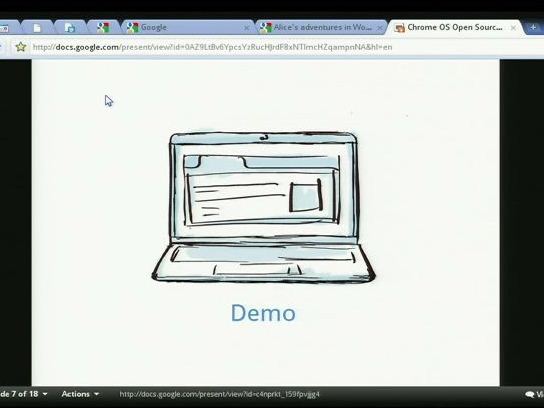Why Chrome OS is no threat to Windows

Instant boot-up times? Everything in the cloud? Chrome is the next gen OS, right? Trouble is, everybody still wants to do more with their PCs. As we've seen with the Linux netbooks that have shrunk into the background, people still want their PCs to come with Windows.
Don't get me wrong – Chrome looks really exciting and Google is completely right to pitch it at the second PC market, but people still want complete flexibility and expect to be able to do everything on a device they've just paid a couple of hundred pounds for.
Cheaper devices? Well, there could be a tiny market there. But in retail non-Windows netbooks have been a complete disaster, contrary to what everyone thought. Remember the stat that 1 in 4 Linux netbooks were returned?
What's more the netbook market is changing. Sure, you can still get budget models, but the move towards larger screen sizes (10.1-inch is the norm) and better specifications means that prices have crept up and capabilities are increasing.
Windows 7 Starter netbooks are already appearing - £269 for an Asus Eee Seashell with Windows 7 is simply stunning in terms of price and specification, while extra bells and whistles such as Nvidia's HD-capable chip are putting focus on laptops in the £300-£400 bracket and even above.
How will Chrome sell?
It's difficult therefore to see where Chrome can get a foothold in the market – especially as we've now had the news that you'll only be able to buy it pre-installed rather than download it yourself.
Sign up for breaking news, reviews, opinion, top tech deals, and more.
Perhaps if Windows 7 hadn't been as frugal with resources as it has been, netbooks would have had to stick with Windows XP. In that case, there would have been plenty of opportunity. And although Microsoft was hardly quick to close the gap, the fact remains that Windows 7 Starter is cheap enough for system builders to turn their backs on XP.
And, by the time Chrome OS hits home late next year, Windows 7 will be everywhere.
Of course, there's always the possibility that the market could change by the time Chrome devices hit the streets – who could have predicted the rise of the netbook would be so huge when Asus released the first Eee two years ago? What's more, Google isn't alone.
Plenty of people are designing netbook-type devices running Android and Linux derivatives and plenty more people want to get a slice of the pie, like Symbian and Intel Maemo.
What Google should do
So here's a thought. Instead of marketing Chrome OS as an operating system proper, what Google should do is to market it as a second instant-on operating system installed alongside Windows. Just like the proprietary Linux-based instant on OSses we see all the time from different manufacturers.
By saying Chrome is definitely a "second PC" OS, Google is clearly already trying not to antagonise Microsoft - after all if Microsoft says to its partners "we'd rather you didn't sell Chrome" then they're unlikely to - but it could go further to massage Microsoft's ego and pretend it is leaving well alone. Whatever Microsoft says, as a corporation it's still all about the desktop. Google, on the other hand, is all about the web and could use Chrome as a Trojan Horse to get in alongside Windows.
The result? People will gradually realise they use their browser for more things than they imagined, and need to boot into a full desktop OS less than they expected - and that has to work in Google's favour.
Dan (Twitter, Google+) is TechRadar's Former Deputy Editor and is now in charge at our sister site T3.com. Covering all things computing, internet and mobile he's a seasoned regular at major tech shows such as CES, IFA and Mobile World Congress. Dan has also been a tech expert for many outlets including BBC Radio 4, 5Live and the World Service, The Sun and ITV News.